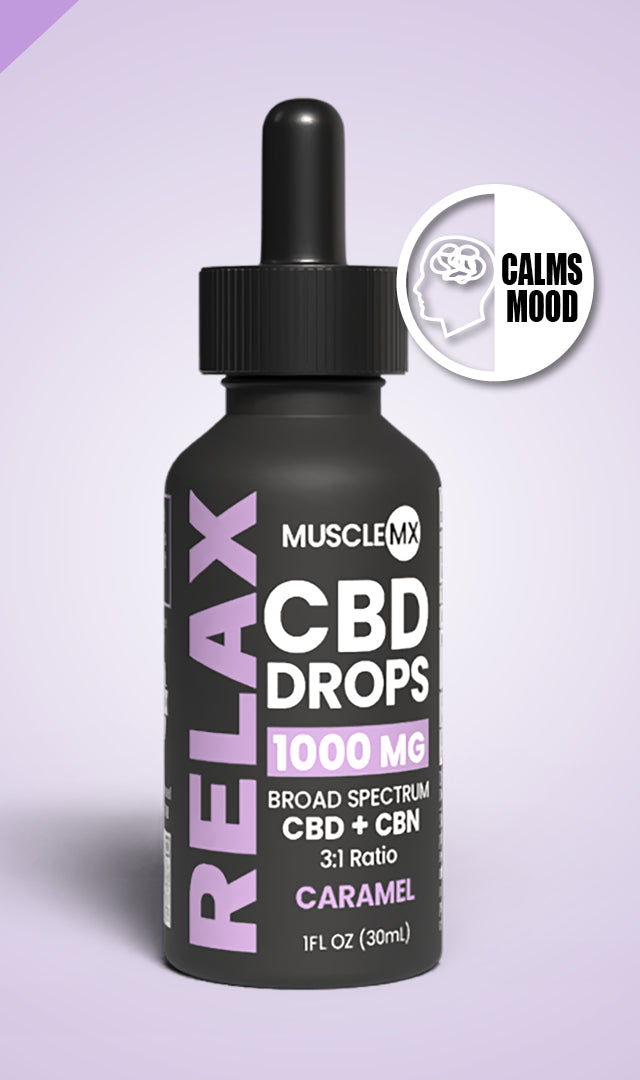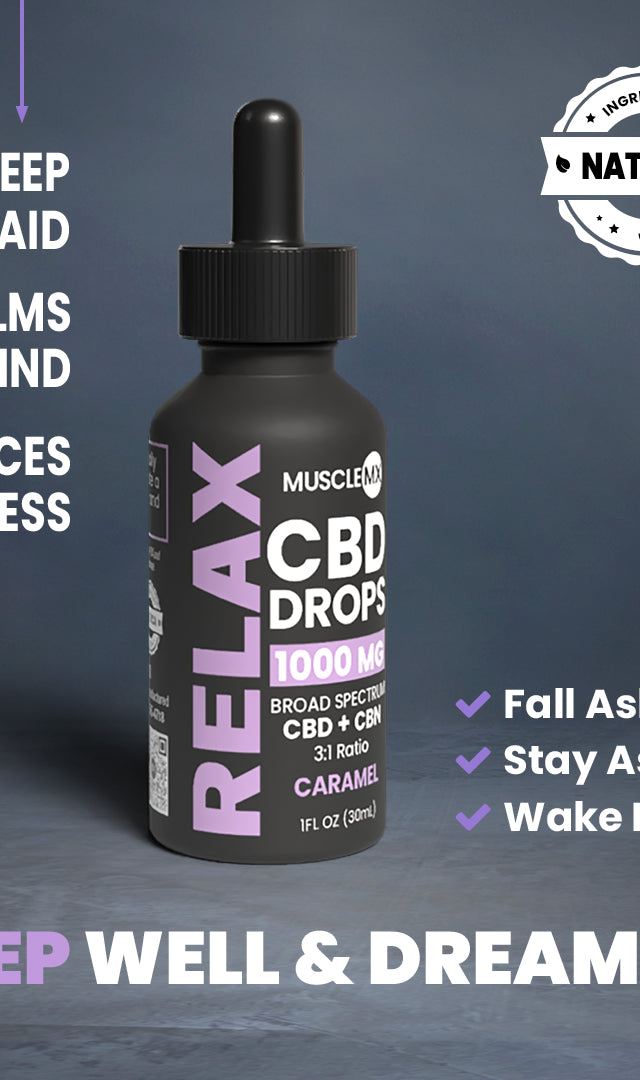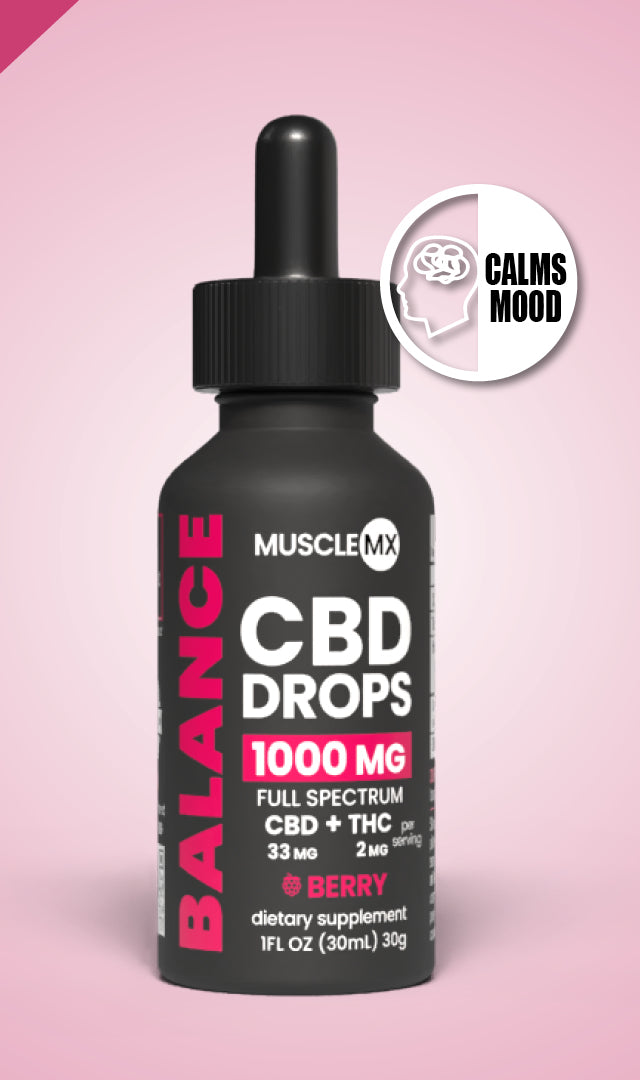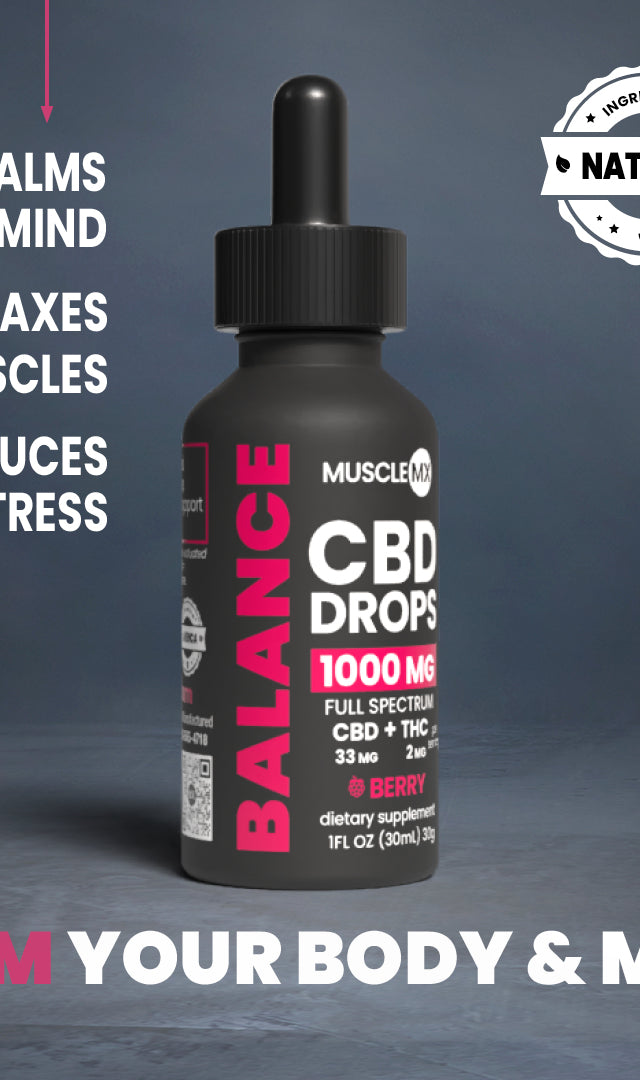CBD Oil for Celiac Disease: What Medical Research Actually Shows
Key Takeaways
Current research reveals promising connections between CBD and celiac disease management, though clinical evidence remains limited. Here's what the science actually shows:
-
CBD targets inflammation pathways: Research shows celiac patients have elevated CB1 and CB2 receptors during active disease, which CBD can potentially modulate to reduce intestinal inflammation.
-
Start low, go slow with dosing: Begin with 20-40mg daily and increase gradually by 5mg weekly, as effective therapeutic doses typically range from 20-1,500mg per day.
-
Choose certified gluten-free products: While CBD is naturally gluten-free, additives and cross-contamination during manufacturing can introduce gluten, so verify third-party testing and certification.
-
CBD complements, doesn't replace gluten-free diet: Current evidence suggests CBD may help manage symptoms and reduce inflammation, but it cannot substitute the proven gluten-free diet treatment.
-
Clinical trials are still needed: Despite promising laboratory findings showing gliadin exposure increases cannabinoid receptors up to four-fold, no human clinical trials have specifically tested CBD for celiac disease.
The endocannabinoid system clearly plays a role in celiac disease pathology, but more research is essential before CBD can be considered a standard treatment option. Always consult healthcare providers before adding CBD to your celiac management plan.
Introduction
Celiac disease — it's a condition that affects over three million Americans, yet many people don't even know they have it. This lifelong autoimmune disorder causes your body to react negatively to gluten, triggering painful symptoms like diarrhea, bloating, abdominal cramps, weight loss, and fatigue. For those struggling with these challenging symptoms, CBD oil has emerged as a potential option worth exploring.
What makes CBD particularly interesting for people with celiac disease? CBD is well-regarded for its anti-inflammatory properties and ability to relieve pain, which could potentially help manage celiac disease symptoms. Recent research has revealed higher levels of both CB1 and CB2 receptors during active disease, pointing to the therapeutic potential of targeting these receptors in patients. Remember, though, that scientific research on the benefits of CBD oil for celiac disease is still limited.
Let's explore what medical research actually shows about using CBD oil for celiac disease, whether it's truly effective, and how to find quality CBD products if you decide to try this approach. We'll examine the evidence behind CBD's anti-inflammatory effects on the digestive system and provide practical guidance on dosage and product selection.
Understanding the Link Between Celiac Disease and Inflammation
Why might CBD oil help with celiac disease symptoms? Understanding the answer starts with exploring the fundamental immune mechanism that drives this condition. Celiac disease is an autoimmune inflammatory disorder triggered by an immune-mediated response to dietary gluten, which damages the small intestinal mucosa and leads to widespread health issues.
How Gluten Triggers Immune Response
The immune reaction begins when gluten, a protein found in wheat, barley, and rye, is broken down during digestion into smaller peptides, including gliadin. Unlike other food proteins, these gliadin fragments resist complete digestion and exhibit strong immunogenicity.
Here's what happens next: these peptides cross the intestinal epithelial barrier into the lamina propria. Once there, tissue transglutaminase (tTG) modifies them through deamidation, enhancing their binding ability to HLA-DQ2 and HLA-DQ8 molecules on antigen-presenting cells.
This interaction is crucial — approximately 30-40% of Caucasians carry these disease-specific HLA haplotypes, though only about 1% develop celiac disease. When gliadin peptides bind to these molecules, they trigger CD4+ T cells to recognize them as harmful, initiating the inflammatory cascade.
Chronic Inflammation in the Small Intestine
The activated CD4+ T cells release pro-inflammatory cytokines that drive inflammation, crypt hyperplasia, and the destruction of intestinal villi. This inflammatory response occurs in two key areas.
First, in the epithelium (the intestinal surface layer), where lymphocytes infiltrate and damage epithelial cells. Second, in the lamina propria, where gliadin interacts with tissue transglutaminase and HLA molecules, generating cytokines that cause tissue damage and villous atrophy.
Gliadin also increases intestinal permeability, creating a "leaky gut" that allows more peptides to pass through the barrier, intensifying the abnormal inflammatory response.
Long-term Risks of Untreated Celiac Disease
Untreated celiac disease can lead to numerous serious complications. Malnutrition and nutritional deficiencies may cause anemia, skeletal abnormalities, and increased fracture risk due to osteoporosis in adults, along with poor growth in children.
Celiac disease is also associated with a higher prevalence of gastrointestinal malignancies, including enteropathy-associated T-cell lymphoma and small intestinal adenocarcinoma. Other risks include peripheral neuropathy, reproductive problems, and increased vulnerability to infections.
Understanding this inflammatory mechanism is important because it represents exactly what CBD oil might help address — persistent inflammation that damages the intestinal lining and triggers systemic effects throughout the body.
Is CBD Oil Good for Celiac Disease?
More and more people with celiac disease are turning to alternative treatments, and CBD has caught their attention. Research suggests several promising ways that CBD oil might help manage celiac symptoms.
Anti-Inflammatory and Pain-Relieving Effects
CBD is globally recognized for its beneficial health effects primarily because of its anti-inflammatory properties and ability to alleviate pain. These qualities make it particularly relevant for celiac disease management. Animal studies show that cannabinoids have anti-inflammatory, antidiarrheal, and pain-limiting properties.
The science behind this involves cannabinoid receptors throughout your body. CB1 receptors exist mainly in the brain and enteric nervous system, while CB2 receptors appear in the enteric nervous system, immune cells, and gastrointestinal epithelial cells. When these receptors are activated, inflammation decreases in animal models of colitis.
CBD's Impact on Gut Lining and Digestion
Here's where things get interesting — research shows somewhat contradictory effects depending on dosage. Low doses of CBD may potentially improve gut health as a probiotic, whereas high doses might cause leaky gut syndrome. This matters because leaky gut allows bacteria and toxins into the bloodstream.
A systematic review of 24 individual cannabinoid compounds found them beneficial in reducing colonic inflammation in rats and mice. However, CBD's physicochemical properties create barriers to achieving pharmacological effects in clinical trials.
Potential to Reduce Gluten Sensitivity Over Time
Some studies suggest that combining a gluten-free diet with CBD consumption might help lower intestinal reactivity after accidental gluten exposure. This could happen because CBD helps repair gut tissue more quickly with its anti-inflammatory properties.
Italian researchers explored CBD's potential to reduce intestinal inflammation in celiac disease, thereby preventing bowel damage. CBD stimulates the production of CB1 and CB2 receptors while boosting immune system function, which may help alleviate symptoms including pain, inflammation, appetite loss, and gastrointestinal irritation.
Understanding these potential benefits is important, but current research into CBD for celiac disease remains preliminary. More clinical studies are needed to fully understand how CBD might fit into celiac disease management.
How Can You Use CBD Oil for Celiac Disease?
Thinking about trying CBD oil for your celiac symptoms? Selecting the right product and dosage can make all the difference in your experience.
What Are Your CBD Options?
CBD comes in several forms, each with its own benefits for people managing celiac disease. Oils offer flexibility with dosing and faster absorption when you place them under your tongue. Capsules provide consistent dosing and are easier to transport. Edibles can be beneficial for digestive ailments as they travel through the digestive tract.
How Much CBD Oil Should You Take?
Most effective CBD dosages range between 20 and 1,500 mg per day, with studies suggesting doses under 100 mg are often less effective. We recommend starting with 20-40 mg daily, then gradually increasing by 5 mg weekly until your symptoms improve. This slow approach helps you find your sweet spot without overwhelming your system.
Finding Quality CBD Products
Your health deserves the best, so here's what to look for. Consult your healthcare provider before starting CBD. Choose high-quality CBD from trusted manufacturers with third-party testing. Look for organic, pure CBD products that are regularly tested. These steps help ensure you're getting a safe, effective product.
Are Gluten-Free CBD Gummies Worth Considering?
Here's something important to know: CBD itself is naturally gluten-free. However, not all CBD products are free from gluten due to additives. Always check labels and verify that gummies aren't produced in facilities handling wheat products. This extra step can save you from accidental gluten exposure.
Tracking Your Progress
Keep a simple log of your CBD usage and symptom changes. Record how you feel after using CBD, noting both positive and negative effects. Be patient — wait a couple of weeks before adjusting your dosage. Your body needs time to adjust, and this careful approach helps you understand what's really working for you.
What Science Says: Research and Clinical Insights
Scientific research reveals fascinating insights into why CBD oil might hold promise for celiac disease management. Recent studies provide a clearer picture of the underlying mechanisms at work.
CB1 and CB2 Receptor Activity in Celiac Patients
Research demonstrates significantly higher levels of both CB1 and CB2 receptors during active celiac disease, with normal receptor levels returning in treated patients. Immunofluorescence analysis shows strong CB1 expression in duodenum biopsies from untreated celiac patients, alongside noticeable CB2 upregulation. CB1 protein levels are markedly higher in active celiac patients compared to controls, falling to normal ranges after successful treatment.
Ex Vivo Studies With Gliadin Exposure
Laboratory experiments show that exposing treated celiac intestinal tissue to gliadin significantly increases both CB1 and CB2 expression up to four-fold. This suggests gliadin directly impacts the endocannabinoid system, potentially explaining why CBD might help manage symptoms.
Genetic Links and Receptor Polymorphisms
The Q63R variant of the CB2-encoding Cnr2 gene increases celiac disease risk more than six-fold. This genetic connection further supports the endocannabinoid system's involvement in celiac pathology.
What We Still Don't Know
Despite these promising findings, substantial gaps remain in understanding CBD's specific mechanisms for celiac symptom relief. No clinical trials have yet evaluated CBD oil for celiac disease directly, leaving questions about optimal dosages and long-term effects unanswered.
Final Thoughts
CBD oil shows promise as a complementary approach for celiac disease management, particularly because of its well-documented anti-inflammatory properties. We've explored how the endocannabinoid system interacts with celiac disease pathology, specifically through altered CB1 and CB2 receptor expression during active disease states. These findings suggest a biological basis for why many celiac patients report symptom relief when using CBD products.
However, it's important to acknowledge that scientific research specifically targeting CBD for celiac disease remains preliminary. While laboratory studies and genetic research point toward potential benefits, large-scale clinical trials have yet to confirm these effects in human patients. CBD should be considered an experimental complementary approach rather than a replacement for the gluten-free diet, which remains the only proven treatment.
If you decide to try CBD oil for your celiac symptoms, start with low dosages of 20-40mg daily and gradually increase as needed. Choose high-quality, third-party tested products that are preferably organic and verified gluten-free. Monitoring your symptoms carefully will help you determine whether CBD provides meaningful benefits for your specific situation.
The endocannabinoid system plays a role in intestinal inflammation and immune function — two key aspects of celiac disease. As research continues to evolve, we may soon have more definitive answers about CBD's effectiveness for celiac disease. Until then, a thoughtful, measured approach under healthcare provider supervision represents the wisest path forward for those exploring CBD as part of their celiac management strategy.
Understanding these potential connections is important as you navigate your wellness journey. Knowledge is power, and being informed about your options helps you make decisions that work best for your unique situation.
FAQ's About CBD Oil for Celiac Disease
Q: Is CBD oil effective for managing celiac disease symptoms?
A: CBD oil shows promise in managing celiac disease symptoms due to its anti-inflammatory properties. Research indicates that CBD may help reduce intestinal inflammation and alleviate pain associated with the condition. However, more clinical studies are needed to confirm its effectiveness.
Q: How should I use CBD oil for celiac disease?
A: Start with a low dose of 20-40mg of CBD oil daily and gradually increase by 5mg weekly until you notice symptom improvement. Choose high-quality, third-party tested CBD products, preferably organic and verified gluten-free. Always consult your healthcare provider before starting CBD.
Q: Can CBD oil replace a gluten-free diet for celiac disease management?
A: No, CBD oil cannot replace a gluten-free diet, which remains the only proven treatment for celiac disease. CBD should be considered a complementary approach to help manage symptoms and reduce inflammation, but it does not treat the underlying condition.
Q: Are there any risks associated with using CBD oil for celiac disease?
A: While CBD is generally well-tolerated, it can interact with certain medications and may cause side effects in some individuals. High doses of CBD might potentially contribute to leaky gut syndrome. It's crucial to discuss CBD use with your healthcare provider and start with low doses.
Q: What does current research say about CBD's potential for celiac disease?
A: Research shows that celiac patients have elevated CB1 and CB2 receptors during active disease, which CBD may help modulate. Laboratory studies indicate that gliadin exposure increases cannabinoid receptors up to four-fold. However, no human clinical trials have specifically tested CBD for celiac disease, highlighting the need for further research.
References
https://altproexpo.com/blog/cbd-and-celiac-disease/
https://www.cannadorra.com/guides--tips--ideas/the-use-of-cbd-in-the-treatment-of-celiac-disease/
https://pmc.ncbi.nlm.nih.gov/articles/PMC3631143/
https://www.ncbi.nlm.nih.gov/books/NBK441900/
https://pmc.ncbi.nlm.nih.gov/articles/PMC1809391/
https://www.sciencedirect.com/science/article/abs/pii/S0165614723002080
https://celiacdiseasecenter.columbia.edu/celiac-disease/pathogenesis/
https://pmc.ncbi.nlm.nih.gov/articles/PMC5437500/
https://my.clevelandclinic.org/health/diseases/14240-celiac-disease
https://pmc.ncbi.nlm.nih.gov/articles/PMC7534377/
https://news.uams.edu/2020/06/04/pioneering-uams-study-warns-of-cbd-supplements-harm-to-gut-health/
https://www.sciencedirect.com/science/article/pii/S0168365923007277
https://www.healthline.com/health/cbd-dosage















































